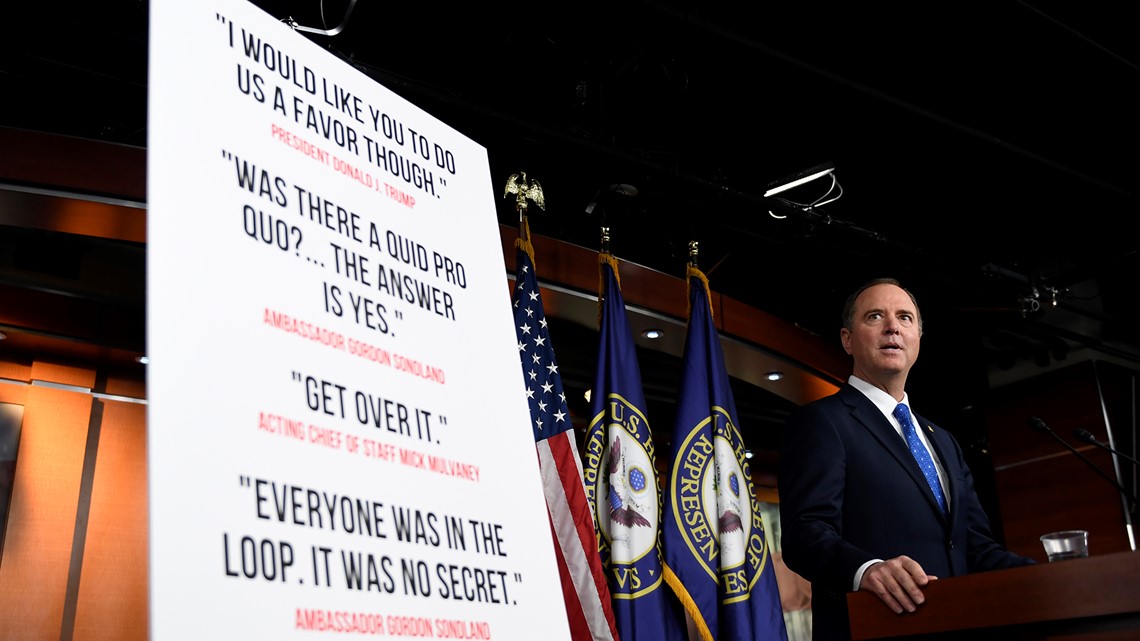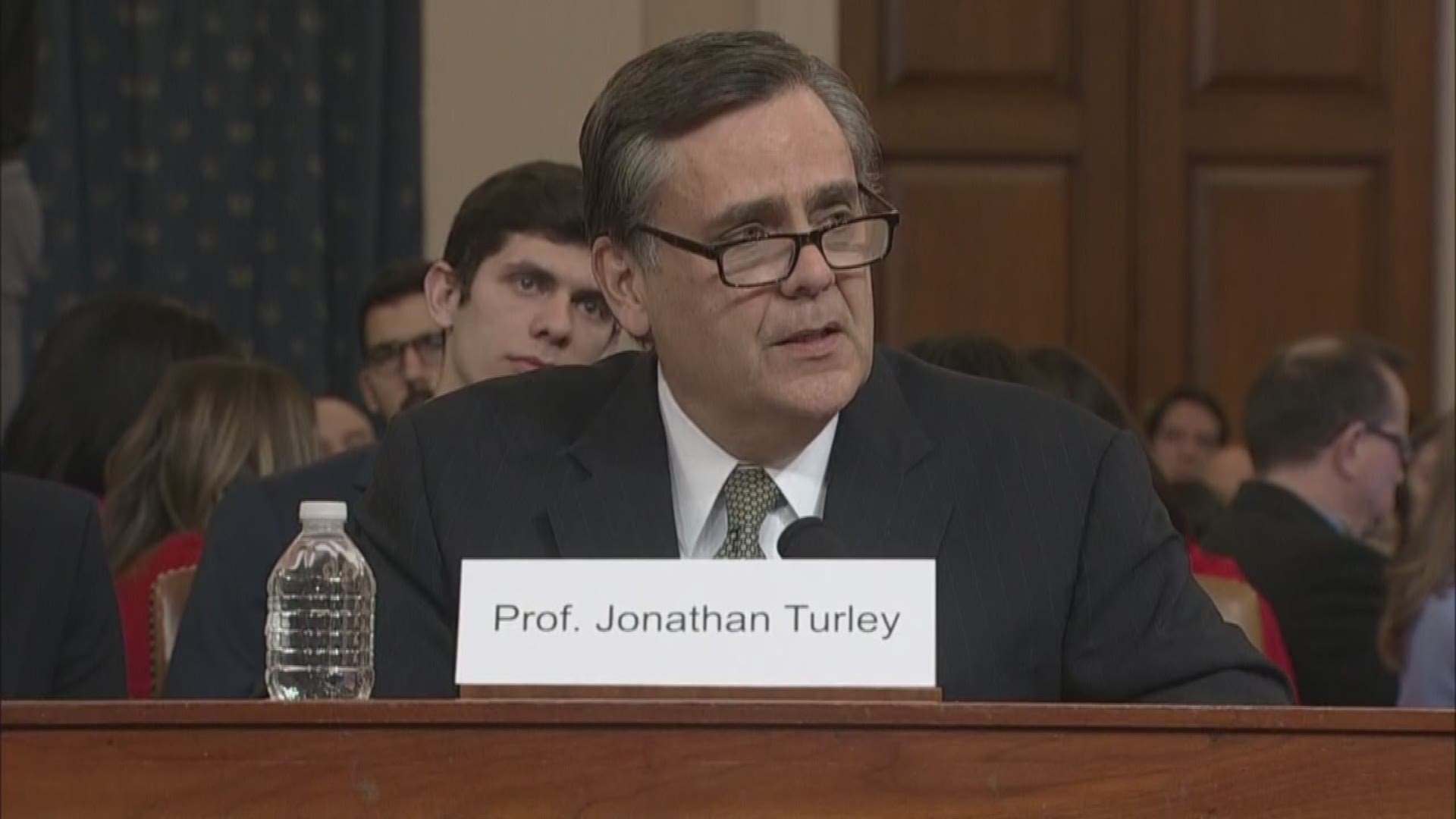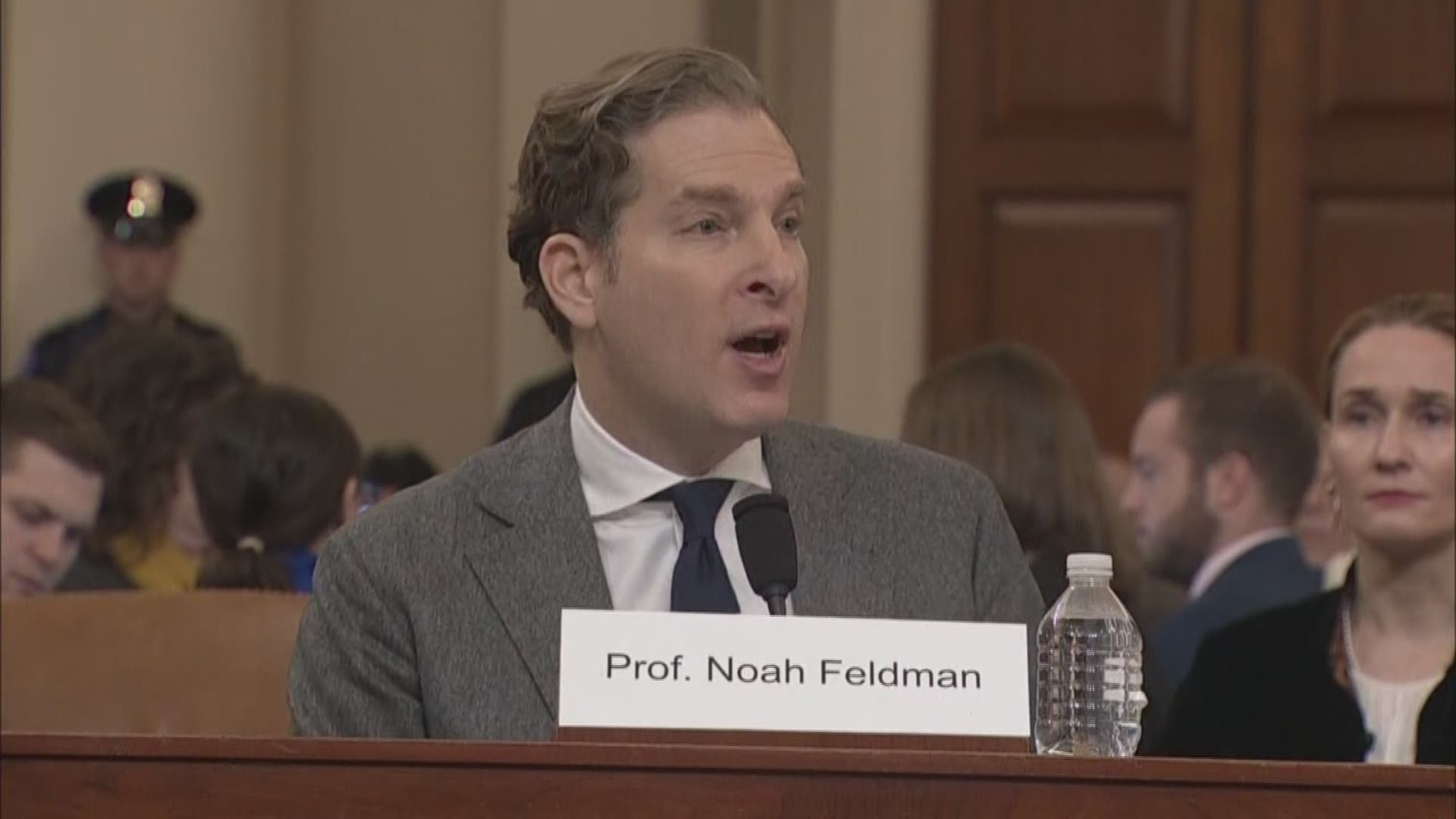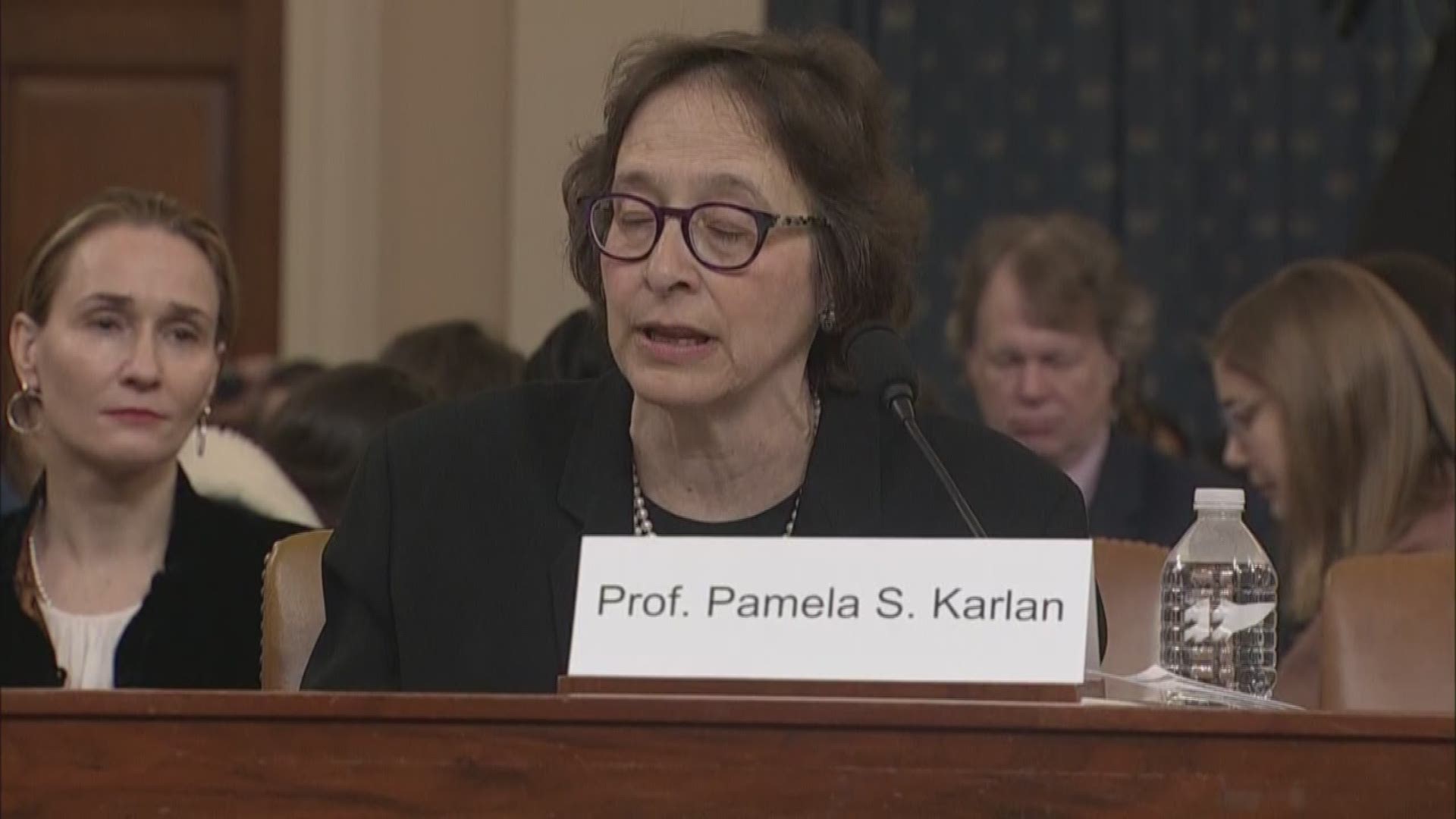WASHINGTON — The House Judiciary Committee's first impeachment hearing quickly exploded into partisan infighting Wednesday. Democrats warned that President Donald Trump must be stopped from enlisting foreign interference in U.S. elections, and Republicans said there are no grounds for removing him from office.
House Judiciary Committee Chairman Jerrold Nadler (D-N.Y.) opened the hearing by arguing that there was ample "precedent for recommending impeachment."
“Never before in the history of the republic has the president engaged in a course of conduct that included all of the acts that most concerned the Framers,” Nadler said.
Referring to past impeachment hearings, Nadler pointed out President Richard Nixon gave Congress recordings during the inquiry and President Bill Clinton gave his blood, via a sample that would eventually lead to his impeachment.
“The facts before us are clear: President Trump did not merely seek to benefit from foreign interference in our elections, he directly and specifically invited foreign interference in our elections," Nadler said. "He was willing to compromise our security and his office for personal political gain.”


Responsible for drafting articles of impeachment, the Judiciary Committee is holding its first hearing since the release of a 300-page report by Democrats on the House Intelligence Committee that found “serious misconduct” by the president.
The report did not render a judgment on whether Trump’s actions stemming from a July 25 phone call with Ukraine's president rose to the constitutional level of “high crimes and misdemeanors" warranting impeachment.
Four law professors are testifying in the hearings. They examine the constitutional grounds of impeachment.
Three of the scholars were summoned by Democrats, and testified that Trump's conduct toward Ukraine is grounds for impeachment. A fourth professor was summoned by the Republicans and advised against impeachment.
The focus of the case lies in the allegation that Trump pressured Ukrainian President Volodymyr Zelensky to launch investigations into former vice president and now Democratic presidential candidate Joe Biden and his son Hunter. Trump is said to have leveraged military aid to Ukraine, which faces Russian military aggression.
Noah Feldman, a professor at Harvard Law School, said the July 25 call in which Trump asked Zelensky to investigate the Bidens qualified as "an impeachable high crime and misdemeanor."
Pamela S. Karlan, a professor at Stanford Law School, had a fiery opening statement.
"Based on the evidentiary record, what has happened in the case before you is something that I do not think we have ever seen before: a president who has doubled down on violating his oath to “faithfully execute” the laws and to “protect and defend the Constitution,"' she said.
Karlan added that "the very idea that a president might seek the aid of a foreign government in his reelection campaign would have horrified" the founding fathers.
Michael Gerhardt, a professor of constitutional law at the University of North Carolina, predicted that, "If left unchecked, the president will likely continue his pattern of soliciting foreign interference on his behalf in the next election."
Gerhardt, who also testified in Clinton's impeachment proceedings in 1998, added that Trump's actions “are worse than the misconduct of any prior president.”
Professor Jonathan Turley of George Washington University was invited by the committee's Republicans, and offered the lone dissenting opinion. He argued in his opening statement that Trump should not be impeached.
Turley made it clear in his opening remarks that he was not a supporter of the president and voted against him in the 2016 election. However, he argued the Ukraine controversy is not enough to impeach Trump.
“I am concerned about lowering impeachment standards to fit a paucity of evidence and an abundance of anger,” he said. “If the House proceeds solely on the Ukrainian allegations, this impeachment would stand out among modern impeachments as the shortest proceeding, with the thinnest evidentiary record, and the narrowest grounds ever used to impeach a president.”
Turley laid out his arguments as the GOP questioned the witnesses, criticizing the "boundless" definition of bribery that the Democrats are using to justify impeachment, as well as their opposition to Trump challenging House subpoenas. Turley argued that Democrats were abusing their power, something they have accused Trump of doing.
“If you impeach a president, if you make a high crime and misdemeanor out of going to the courts, it is an abuse of power. It’s your abuse of power," Turley said. "You are doing precisely what you’re criticizing the president for doing.”
In regards to the definition of bribery, Turley said, “This isn’t improvisational jazz. Close enough is not good enough. If you’re going to accuse a president of bribery, you need to make it stick, because you’re trying to remove a duly elected president of the United States.”
The three other professors disagreed with Turley on whether Trump's actions constituted bribery.
“I just want to stress that if what we’re talking about is not impeachable, then nothing is impeachable,” Gerhardt said during his testimony. “This is precisely the misconduct that the Framers created a Constitution including impeachment to protect against.”
“If we cannot impeach a president who uses his power for personal advantage, we no longer live in a democracy, we live in a monarchy or a dictatorship," Feldman said.
Expectations are increasing that articles could be voted on by the Judiciary Committee within a few days. Then it goes to the full House for a vote, likely before Christmas.
If a majority of the House votes in favor on even one article, Trump would officially be impeached, joining only Andrew Johnson and Bill Clinton with that distinction. While there were House investigations into Richard Nixon, he resigned before there was a vote.
If Trump is impeached, the process would then move to the Senate for a trial likely to start in January. The senators would serve as jurors. That includes four who are currently running for the Democratic nomination for president. They would need to be present for the trial, taking them off the campaign trail.
If two-thirds of the Senate votes to convict Trump, he could be removed from office. But the case for impeachment has been solidly divided among party lines. Even if every Democrat and independent in the Senate voted to convict, at least 20 Republicans would have to agree.




